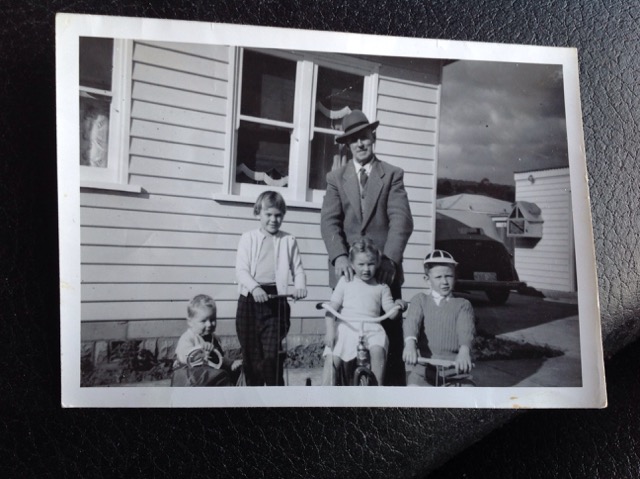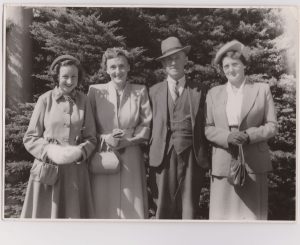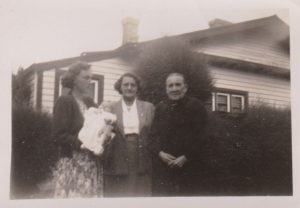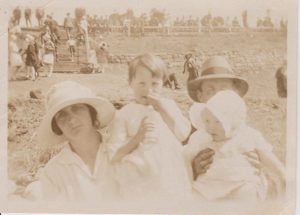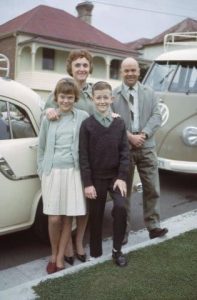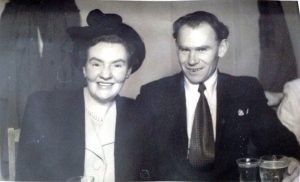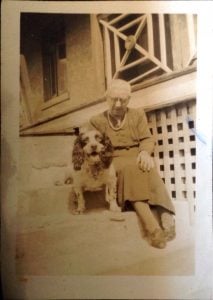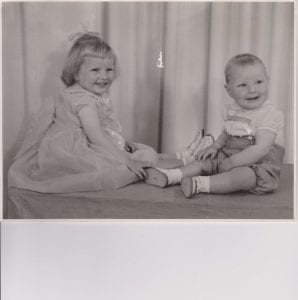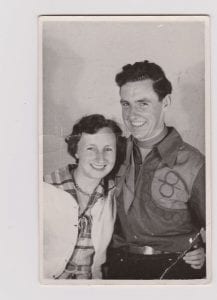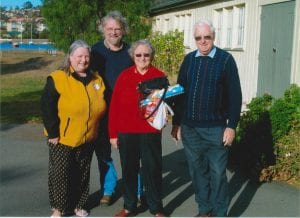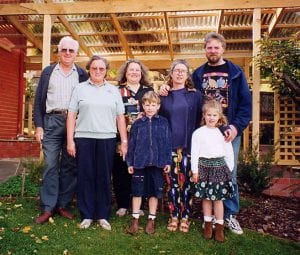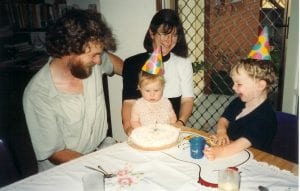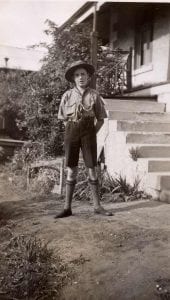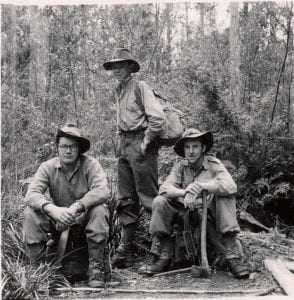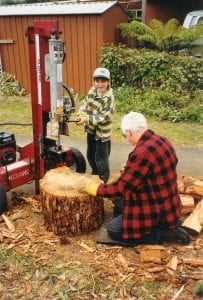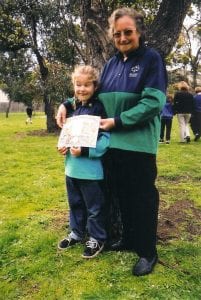Henry Lewis England was the only son born to Henry Lewis and Julia Charlotte England nee Chandler. He was born 12 December 1888 in Hobart when the family lived in Regent Street, Sandy Bay.
Henry’s other siblings were Ruby May b. 5 July 1886, Gladice Emily b. 4 August 1891 and Lucy Grace b. 22 October 1894. When Ruby was born the family were living in Union Street, Sandy Bay.
Henry’s father was a labourer and a road man according to the children’s birth certificates. In fact, he worked for the Queenborough Town Board in various capacities including rent collector and foreman of the works.
When Henry junior was only 17 years old, his mother passed away in March 1905 at her residence in Grosvenor Street, Sandy Bay. By the time the war years came around, Henry, at age 27, was given an exemption due to him having to look after an invalid father.
Marriage
In 1923, Henry married Hannah Davey who was working as a housekeeper to the Lord Family in Grosvenor Street, not far from where Henry lived. The marriage took place at Longford where Hannah’s widowed mother was living. See my post about Hannah for all the details of the marriage including newspaper report and a photo.
Family life with Hannah
Three daughters were born to this couple: Iris Alston 1924 – 1934, Margaret Grace 1928 – 2017 and Phyllis Joan born 1934. Below are some memories from both Margaret (M)(interviewed a year or so before her death) and Phyllis.
- Dad worked for the Hobart City Council as a street sweeper.
- He was a volunteer fire fighter and went up Mount Wellington to fight a large fire when Phyllis was about 8. I wouldn’t go back inside our house till I saw him come home.
- Dad loved his fishing in Sandy Bay but none of us could swim and we didn’t have life jackets. We’d go fishing with Uncle Percy Chandler. Phyllis used to take the fish to neighbours in a heavy steel bucket.
- During the war years we had a trench dug in our backyard but it was usually full of water so it probably wouldn’t have saved us if the Japanese arrived.
- Dad pulled down our toilet and laundry, then built a new toilet, bathroom and wash house still out in the back yard, not attached to the house. He made the cement blocks by hand.
- When the war was over, he taught returned soldiers how to make cement articles.
- He broke his arm at work and had to spend a few days in hospital.
- Dad would visit his mother’s grave in Sandy Bay and his daughter Iris’s grave at Cornelian Bay every month.
- He made model yachts and gave them away. Philip (my brother) has one and he gave it to his son Alexander.
- We travelled everywhere by either tram or walking as we didn’t own a car.
- Dad didn’t go to church but cooked us a roast every Sunday when mum, Margaret and I went to Sunday School and church.
- Dad had pigeons in a pigeon loft and he’d get the pigeons out and I would run up to Fitzroy Gardens and stand in a special place. I’d let the pigeons go and dad would see who got home first, me or the pigeons. That was about a weekly event. (M)
- He always wore his watch with the chain on it, the fob watch. He always had that on where ever you wore a collar and tie. (M)
- Hobart City Council had a picnic day once a year down at Long Beach, just where the roundabout is. Dad was a good runner often winning the races. (M)
- When you went to Long Beach on the trams, us kids would all go upstairs on the double decker tram and when we got to Wrest Point, “There’s Uncle Harry out there!” Everybody knew dad. (M)
Philip, Bronwyn, Suzanne and Leigh


Can you find him with his hat at an angle?

given to his grandson Philip.

hence the spots.
My memories
Henry Lewis England was my grandfather and he bequeathed his piano to me. I remember as a child learning and practising those scales and even now, after many years of not using the piano, I can still play most of Fur Elise from memory.
Mum’s parents were still alive while I was a child but had died by the time I was 10. I can remember visiting them at their house and having meals there. The main thing I remember is their toilet was outside. Pa England had lots of birds and loved growing fruit trees while Nanna England kept the house tidy and it was always warm and welcoming.
